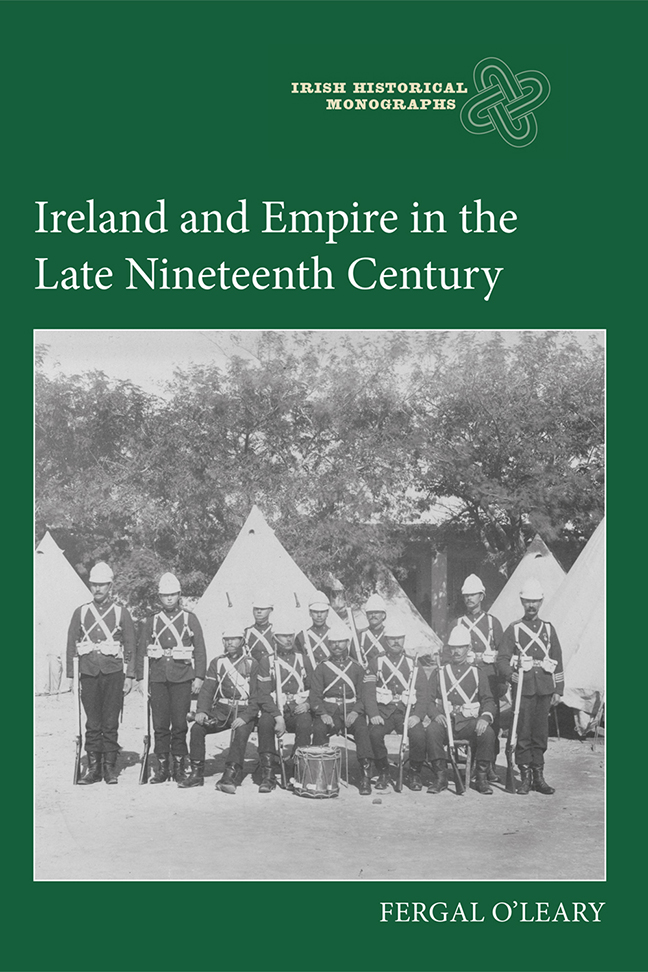2 - Another ‘People Struggling to be Free’: Crisis and Conquest in the Sudan
Published online by Cambridge University Press: 17 December 2023
Summary
‘All are in good health and spirits’: these few simple words described to Irish readers the condition of Hicks Pasha and his army of five thousand men in September 1883. Telegrams, printed in the press, confirmed that Hicks’ army of Egyptian forces would march out of Khartoum along the bank of the White Nile, although, according to another report, they would leave the city on a steamer and on indigenous boats called ‘nuggurs’ and journey to the Kordofan region of the Sudan in pursuit of their enemy. Either way, there was a sense of optimism at the start of Hicks’ military expedition against the Mahdists; the latter wanting to rid the Sudan of its infidel presence. Several telegrams reported that many of the enemy's followers had deserted because they were tired of the Mahdi whose influence among the tribes had seemingly diminished. All appeared to bode well for Hicks’ mission and so there might soon be an end to the fighting. But this misplaced optimism only made what happened on the plain at Shaykan a few weeks later all the more of a shock. As Hicks departed Khartoum, he could not have envisaged what lay ahead for both himself and his men at the hands of the Mahdi. The defeat of this Egyptian army against the Mahdist rebels was as brutal as it was consequential.
Following the British government's ‘temporary’ occupation of Egypt in September 1882, it was not long until Gladstone's Cabinet was drawn into further crisis in the region. The Sudan had been under Egyptian administrative control since the 1820s. Evangelical zeal in the early Victorian era resulted in European missionary involvement in the territory. The Catholic Church, in 1842, founded a mission in Khartoum, and after the establishment of an Austrian Consular Agency in the city, the mission came under the protection of the Austro-Hungarian Empire. Catholic missionary activity in the Sudan expanded thereafter. However, years of festering local resentment towards the European and Egyptian presence in the country eventually led to the mahdiyyah eruption of 1881. According to the historians Bengt Sundkler and Christopher Steed, this was a messianic compulsion to rid the Sudan of ‘all alien influence in its drive to create an Islamic theocracy’. Events in the Sudan reached crisis point in November 1883.
- Type
- Chapter
- Information
- Ireland and Empire in the Late Nineteenth Century , pp. 48 - 88Publisher: Boydell & BrewerPrint publication year: 2023



